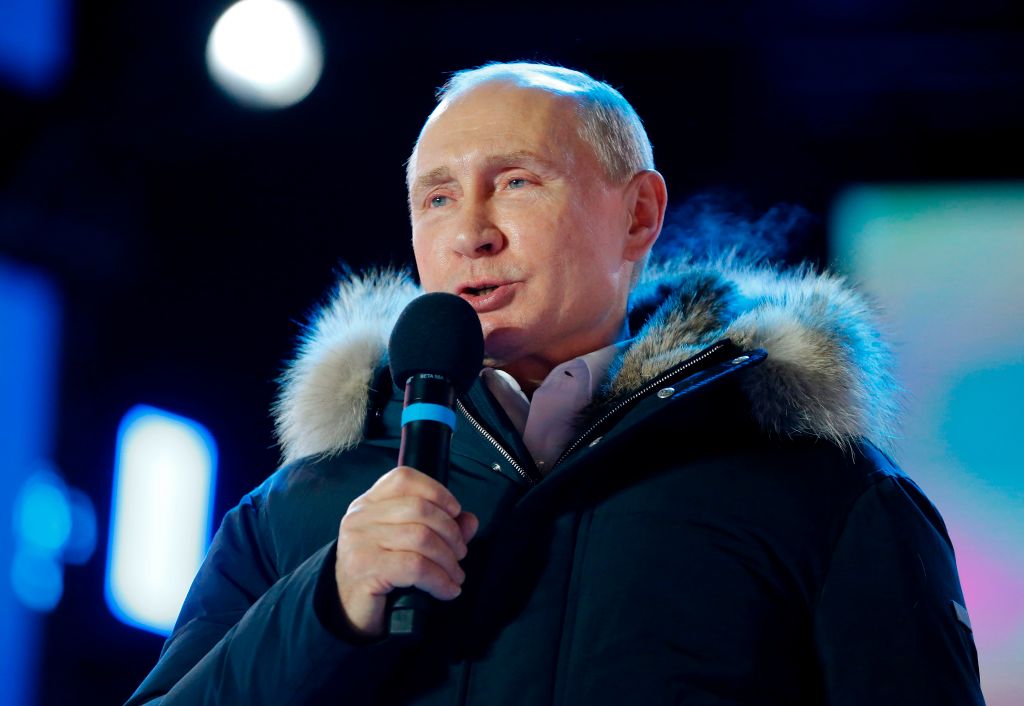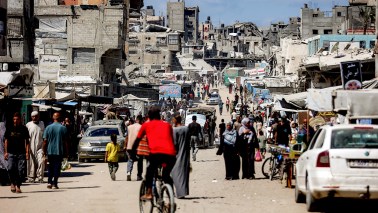Russia’s aggression towards Ukraine is growing, and as Owen Matthews writes in this week’s Spectator, there is a looming threat of war breaking out between the two countries. But the Kerch Strait confrontation also poses a question for Britain: how well equipped are we to deal with this new style of warfare invented by Putin and being adapted by China, North Korea and Iran?
In the run up to the Great War, Britain’s foreign secretary, Edward Grey, offered a memorable comment on the changing nature of conflict: “Instead of a few hundreds of thousands of men meeting each other in war, millions would now meet, and modern weapons would multiply manifold the power of destruction,” Grey wrote. His point was that this would be war fought on mass rather than manoeuvre – and it’s equally true today.
Even the Russia-Ukraine war has an impact in Britain: if you are one of the many private pension holders in UK whose funds were invested in EN+, controlled by oligarch Oleg Deripaska, you will have been hurt by sanctions on him causing a huge share price drop. Russia’s misadventures in Salisbury caused house prices to drop some 10 per cent – and that’s nothing compared to the fear of touching discarded remnants.
We are now in a new era of state-on-civil conflict where the potential victims are individuals, personal security and our national way of life. This is well short of a military war and even Putin’s hybrid warfare, but events are clearly moving in that direction. Where are our instruments to respond, short of military action? Is democracy itself inhibiting our national ability to protect our democracy?
We do have some national apparatus to help. The Intelligence and Security Services have fast access to Government. The National Security Council provides assessments, preparations and ideas on responses. But it is not “in command” of those responses. COBRA is a crisis management facility which, against the strength of individual ministers, lacks a command capability; its weaknesses were exposed by the chaos of the Somerset floods in 2014.
By contrast, Putin has a bunker in Moscow which commands 48 instruments of state power. He can direct supersonic overflights (no flights today), a cyber-attack on credit card transactions (no supper tonight) and anti-government demonstrations (no through road) simultaneously against one nation – all supported by fake news disseminated by the state-controlled broadcasters RT and Sputnik.
We must respond carefully to the threat of this behaviour. Information plays a big role: look at the success Bellingcat has had, for example, in establishing the truth around incidents in Russia and Ukraine (by contrast it took the Joint Investigation Team four years to confirm that MH17 was downed by a Russian missile).
But what else can we do? An eye for an eye is the wrong answer. A cyber retaliation on North Korea would not be right. We do not assassinate ex-pat ex-spies. And while we do have the law, it’s seldom used. Publicly, only one Russian oligarch with suspected regime links – Roman Abramovich – has been refused a visa. Just one Unexplained Wealth Order has been issued. The US has recently been arresting Chinese spies. Are we ready to do likewise?
The private sector must also catch up. The National Cyber Security Centre – part of GCHQ – says that two-thirds of FTSE 350 companies are untrained on how to deal with a cyber attack. The social media giants are being agonisingly slow in dealing with politically interfering state sponsored activity. The international diplomatic response to the Novichok attack was excellent, as was the exposure of the bungling GRU in the Netherlands. But the West has been weak over China’s grossly illegal military island creation in the South China Sea.
There are military response options at our disposal: Cold War submarine activity has returned to the North Atlantic, for example. We must let them know we know everything they do. Illegal military overflights need to be confronted without fail. Electronic and cyber warfare against our troops in Estonia must be met with strong countermeasures.
So how best can we combine the power of Britain’s political, military, diplomatic and civil instruments to see off our enemies? My proposal is that we need a national command and control function with a clear mandate to deal with every threat short of war – from cyber attacks to disinformation. This would be supported by clear rules of engagement. No single department, as currently constructed, can do this. No single individual, except the Prime Minister, has the authority.
And during the next general election, when our democracy will be at its most vulnerable, the command and control of our civil and state instruments will be at its weakest.
James Burnell-Nugent was Commander-in-Chief Fleet of the Royal Navy from 2005 to 2007






Comments